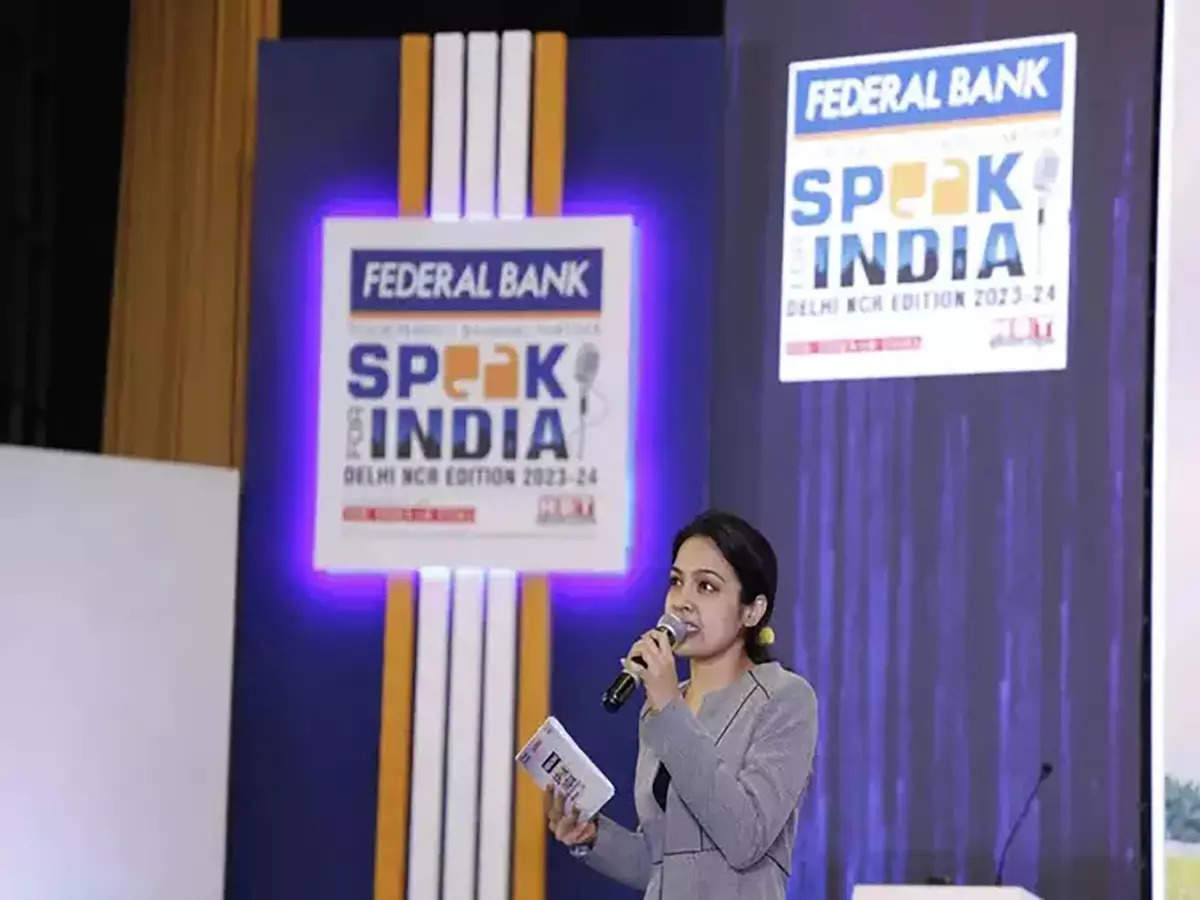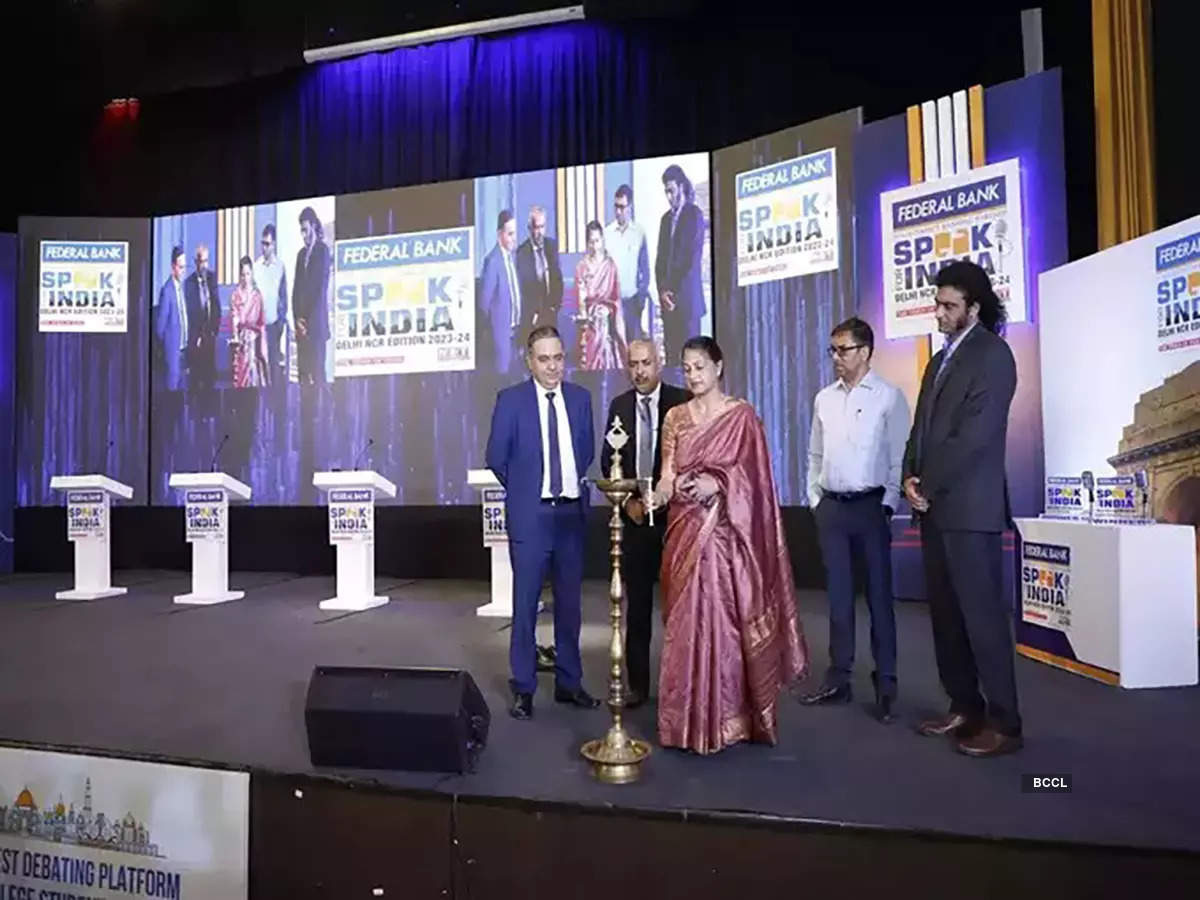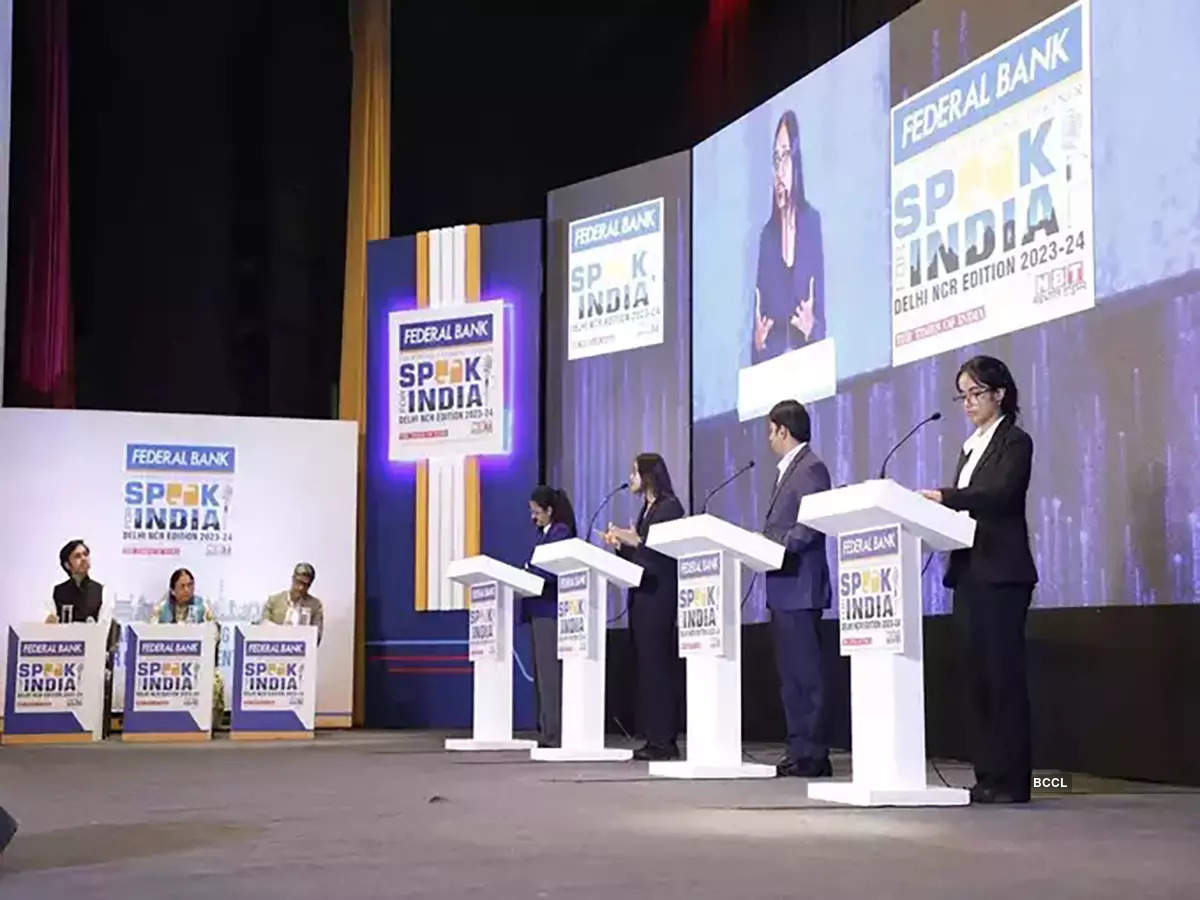
Deciding the winner: 8 participants, 3 rounds, 3 topics
During the Grand Finale of Speak for India Delhi-NCR, three rounds were conducted. Competitions took place across various locations in Delhi and NCR at the district level, leading to eight winners who advanced to the final. These finalists were split into two groups, each comprising four contestants. Group A included Priya Singh from Ramanujan College, Ojasvi Gupta from Bharti College, Shashank Gupta from Kirodimal College, and Cheshta Malik from Ramjas College. Contestants had three minutes each to discuss their given topic, with two participants arguing in favour and two against in each group.
In This Pic : Cheshtha Malik triumphs in Speak for India finale
Read More
First debate topic: Equal pay and prize money for women in sports
Supporting the motion, Priya made the point, "Parents won't motivate their children to follow a career path that doesn't offer financial rewards or recognition. The RCB women's team's victory came down to their ability." Ojasvi added, "It's essential to initiate changes from the very foundation."
In This Pic : Cheshtha Malik triumphs in Speak for India finale
Pic Courtesy : BCCL - Non Copyright
Read More
Shashank's comeback
Countering the opposition, Shashank questioned, "What's the merit in opposing something merely for opposition's sake? The impact of a speech should not be gauged by the amount of applause it garners. Article 39D emphasises on equality. Wages consist of two parts: a basic wage and an additional wage. The real issue concerns the basic wage, which the BCCI has made equal. Deepika Padukone outearns Ritesh Deshmukh due to her greater opportunities. Similarly, if Smriti Mandhana is provided with more opportunities, her earnings will surpass those of her current standing in the future."
In This Pic : Cheshtha Malik triumphs in Speak for India finale
Pic Courtesy : BCCL - Non Copyright
Read More
Cheshtha's response
Cheshtha argued against the motion, saying, "True equality is a myth; what we see is merely compensation. Consider the differing revenues between the Women's Premier League and the IPL. However, Grand Slam tournaments do offer equal prize money to both men and women. PV Sindhu has remarked that an athlete's earnings are tied to their ability to attract sponsors. Likewise, Deepika's income wasn't merely a product of her opportunities; it was her ability to draw in audiences and sponsors that truly bolstered her earnings."
In This Pic : Cheshtha Malik triumphs in Speak for India finale
Pic Courtesy : BCCL - Non Copyright
Read More
Second debate topic: setting the legal age for internet use in India - 13 or 18
Group B consisted of four participants, Pankaj Upadhyay from DAVCSC, Priyadarshini Singh of Dr. B.R. Ambedkar University, Somdatta Chakravarti at Miranda House, and Priyanshu Raj from Lloyd Law College, who debated the topic of setting the legal age for internet usage in India at either 13 or 18.
